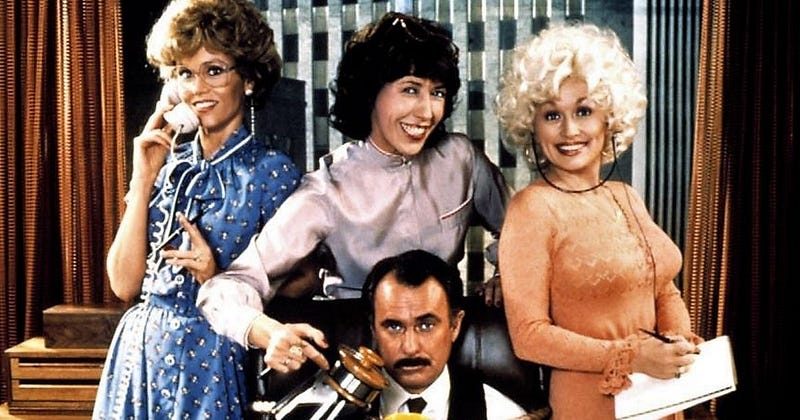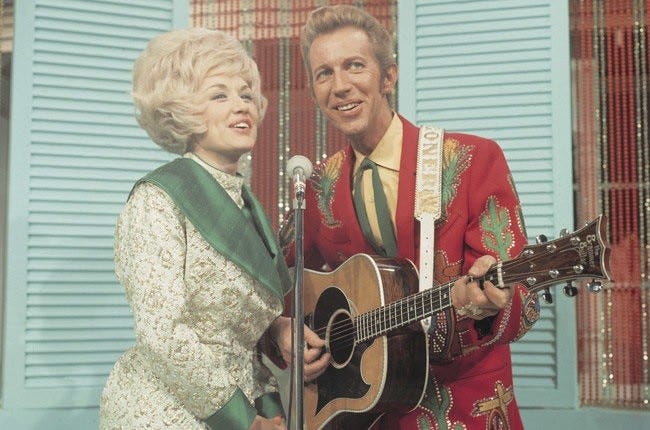D-O-L-L-Y: ‘Mountain-Moving’ Moxie
https://www.youtube.com/MoxieTalk?sub_confirmation=1
https://medium.com/moxietalk-with-kirt-jacobs/d-o-l-l-y-mountain-moving-moxie-375cd0a32f63
Dolly Parton seems to be having a moment.
A few months ago, I noticed that Dolly seemed to be popping up everywhere, most notably as the subject of the hot trending podcast series “Dolly Parton’s America.” Produced by WNYC and hosted by the master storyteller Jad Abumrad of Radiolab fame, the series explores the intersection of Dolly’s life and career and American cultural moments.

There’s little doubt about Parton’s considerable contributions to the arts and culture. She’s written and performed some of the most iconic songs of our time; she’s starred in several blockbuster movies including 9 to 5 and Steel Magnolias; she’s a businesswoman who has made an otherwise insignificant Smoky Mountain hamlet into a tourist destination; she’s a philanthropist who’s signature cause is children’s literacy.
And above it all, soars that beautiful, expressive voice. Listening to her sing is like watching a butterfly flit effortlessly from mountain flower to mountain flower on a bright, sunny summer day. She lands on notes so delicately and tenderly, yet can also soar powerfully towards the heavens sweeping the listener along in her wake. She can growl and punch a note for emphasis with the conviction of a black bear spoiling for a brawl, she can bounce along like a babbling brook, she can croon like a whippoorwill. Her voice evokes and evolves the mountains she’s always called home.
It takes moxie to thrive in the public eye for decades, and Dolly has it. Here’s how:
Moxie knows its core.
Go to a Dolly Parton concert and you’ll notice the diversity right away. You’ll see very traditional older couples who have been fans since her Porter Wagner days. You’ll see young women who hear her tunes as a feminist anthem. You’ll see LGBTQ folks who embrace her as an icon of empowerment and acceptance.
Her fans represent every conceivable position on the political spectrum. In times as harshly divided as these, how is it possible that one woman’s artistry unites so many people?
Perhaps it’s because Dolly has steadfastly refused to engage in any political side-picking of any kind. She artfully avoids engaging in the controversy around social issues or causes. Listening to her dodge those questions from interviewers is fascinating. She deftly bats uncomfortable topics away with humor, her weapon of choice.
It’s not because she lacks core convictions. I believe she has deeply held convictions, and her actions shout them to the world.
Her core conviction is around radical love, acceptance, and hospitality. And she’s not interested in telling anyone else how they should do it. Instead, she just does it herself. Every performance, every business venture, everything about Dolly seems to be aimed at making you feel welcome and like you belong.
Are her motives entirely philosophical and pure? Probably not. Probably they are a mix of commerce and conviction. Here’s a quote from a time when a reporter tried to get her to comment on a politician:
“Of course I have my own opinions about everybody and everything,” she said. “But I learned a long time ago, you keep your damn mouth shut if you want to stay in show business. I’m not in politics. I’m an entertainer.”
Dolly is clear about what she wants, and she clearly sees dabbling in politics as a way to risk losing the platform she has built. She’s unwilling to compromise. That takes moxie.
Moxie fights back without punching down.
Dolly’s focus on her goal was clear from the very beginning of her career, which took a huge step forward when Porter Wagner brought her on board for a supporting role on his influential show.

It became clear over time that Dolly could outshine anyone on stage, even her rhinestone-encrusted boss. Wagner became a lid on the pot, holding back Dolly’s talent until simmering tensions came to a full rolling boil. Her dreams were bigger than his show and bigger than Nashville.
Dolly parted ways from Wagner and struck out on her own. He sued her over the split, and Dolly spent years paying off the settlement. Even so, she takes pains to speak graciously of Porter and even visited him at his bedside as he lay dying.
She could have gotten a lot of mileage out of making Wagner the bad guy in her story. That narrative would have sold. But she didn’t. Instead, she treated him with kindness and respect, even when they disagreed. That takes moxie.
Moxie is unforgettable.
I often ask my guests how they would like to be remembered. That may be a moot point for Dolly. She’s unlikely to be forgotten for a long, long time.
It’s not just that her catalog of music is huge and timeless and will populate playlists for years to come, though that is true.
It’s that she’s also stacked up hundreds of songs — including click tracks of her vocals — ready to be arranged and recorded in collaboration with other artists for years to come. It’s conceivable that Dolly will have hits coming decades after she passes from this life, and that those hits will be across musical genres that haven’t even evolved yet with artists that haven’t even been born yet.
“Any producer in the world, when I’m gone, they could take my songs just the click track and my vocal and build a complete arrangement around that, any style,” she said. “That will go on forever.”
It takes moxie to leave a legacy, and Dolly certainly has it.
If I ever get the chance to interview Dolly, what should I ask?
Dolly Parton’s Wikipedia Page: https://en.wikipedia.org/wiki/Dolly_Parton






























